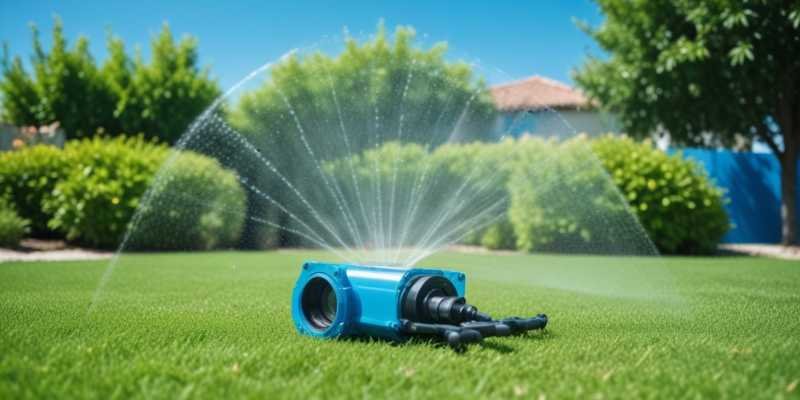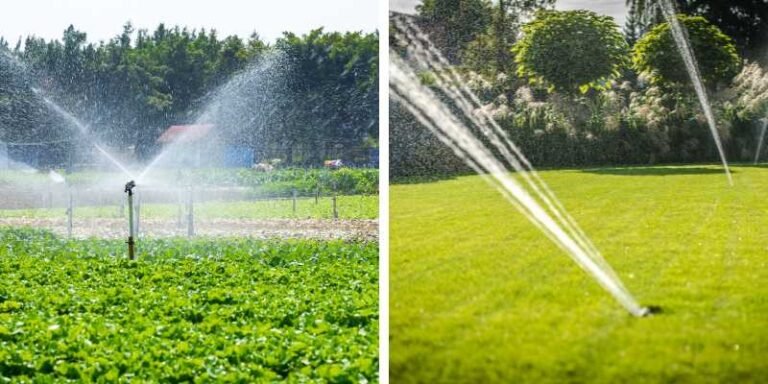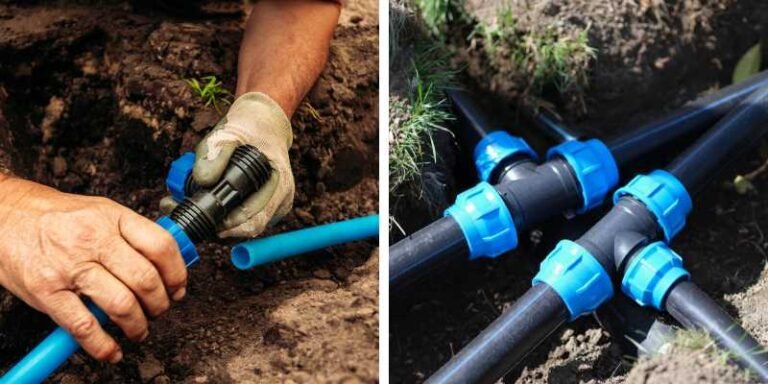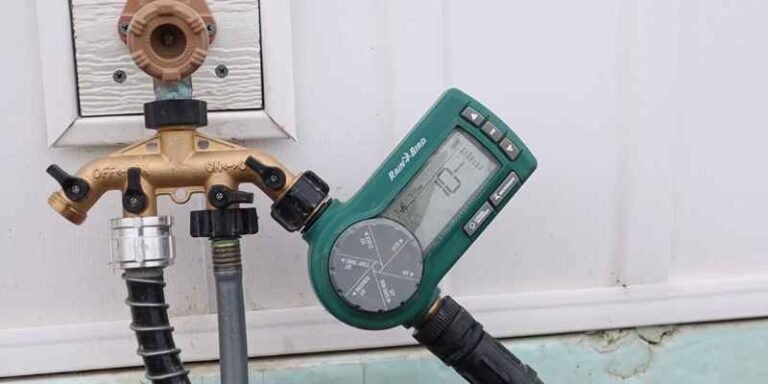Smart Irrigation Systems: The Future of Watering
In today’s rapidly advancing technological landscape, traditional irrigation methods are being revolutionized by the advent of smart irrigation systems. These systems utilize cutting-edge technology to optimize water usage, enhance crop yield, and minimize environmental impact. In this article, we delve into the world of smart irrigation, exploring its features, benefits, and future prospects.
What Are Smart Irrigation Systems and How Do They Work
Smart irrigation systems represent a significant advancement in the field of agriculture and landscaping, utilizing cutting-edge technology to revolutionize traditional watering practices. At their core, smart irrigation systems are designed to optimize water usage, promote plant health, and minimize environmental impact through the integration of sensors, controllers, and artificial intelligence (AI). Let’s delve deeper into the intricacies of smart irrigation systems and explore how they work.
Components of Smart Irrigation Systems
Smart irrigation systems consist of several key components, each playing a crucial role in the system’s overall functionality. These components work together seamlessly to collect data, analyze environmental conditions, and adjust watering schedules accordingly. Here’s a breakdown of the main components of a typical smart irrigation system:
| Component | Description |
|---|---|
| Sensors | Sensors are devices that collect data about various environmental factors, such as soil moisture levels, weather conditions, and plant water needs. Common types of sensors include soil moisture sensors, weather sensors, and plant sensors. |
| Controllers | Controllers are responsible for processing data collected by sensors and making decisions about watering schedules. These can be climate-based controllers, soil moisture sensor controllers, or AI-based controllers. |
| Add-on Devices | Add-on devices enhance the functionality of smart irrigation systems by providing additional data and control capabilities. These devices include rain and freeze sensors, wind sensors, and humidity sensors. |
How Smart Irrigation Systems Work
Smart irrigation systems operate through a series of interconnected processes that leverage data, automation, and AI algorithms to optimize watering practices. Here’s a step-by-step breakdown of how smart irrigation systems work:
- Data Collection: Sensors gather data about environmental conditions such as soil moisture levels, weather forecasts, and plant water needs. This data is transmitted to the system’s controller for analysis.
- Data Analysis: The controller processes the incoming data using AI algorithms to determine the optimal watering schedule. Factors such as soil moisture levels, weather conditions, and plant type are taken into account to ensure precise and efficient watering.
- Decision Making: Based on the analysis of incoming data, the controller makes decisions about when and how much water to apply to the designated area. These decisions are guided by pre-programmed settings and user-defined preferences.
- Water Application: Once the watering schedule is determined, the controller communicates with irrigation equipment to initiate the watering process. This can involve activating sprinklers, drip lines, or other irrigation methods to deliver water to the target area.
- Monitoring and Adjustment: Throughout the watering cycle, the system continuously monitors environmental conditions and adjusts watering schedules as needed. This real-time monitoring ensures that water is applied precisely where and when it’s needed, maximizing efficiency and minimizing waste.
- Feedback Loop: Smart irrigation systems incorporate a feedback loop mechanism that allows them to learn and adapt over time. By analyzing the effectiveness of watering schedules and adjusting parameters accordingly, the system continuously improves its performance and efficiency.
By leveraging advanced technology and data-driven decision-making, smart irrigation systems offer a more precise, efficient, and sustainable approach to watering. Whether used in agriculture, landscaping, or municipal water management, these systems represent the future of irrigation, promoting water conservation, environmental sustainability, and healthy plant growth.
Features of smart irrigation systems
Smart irrigation systems boast an array of features designed to streamline the watering process and maximize efficiency. These include:
- Remote access and control via mobile devices, allowing users to monitor and adjust irrigation settings from anywhere.
- Climate-based controllers that automatically adjust watering schedules based on local weather conditions.
- Soil moisture sensor controllers that measure soil moisture levels and adjust watering accordingly.
- Add-on sensors such as rain and freeze sensors, wind sensors, and humidity sensors, further enhancing precision and efficiency.
The Role of Artificial Intelligence (AI) in Smart Irrigation Systems
Artificial Intelligence (AI) plays a pivotal role in driving the efficiency and effectiveness of smart irrigation systems, enabling them to make data-driven decisions and adapt to changing environmental conditions in real-time. By harnessing the power of AI algorithms, these systems can optimize water usage, enhance crop yield, and minimize environmental impact. Let’s delve deeper into the multifaceted role of AI in smart irrigation systems and explore its various applications.
Applications of AI in Smart Irrigation Systems
AI technology is integrated into various aspects of smart irrigation systems, enabling them to perform a wide range of functions and tasks. Here’s a breakdown of the key applications of AI in smart irrigation systems:
| Application | Description |
|---|---|
| Data Analysis | AI algorithms analyze vast amounts of data collected by sensors, including soil moisture levels, weather forecasts, and plant water needs. By processing this data, AI can identify patterns, trends, and correlations, enabling the system to make informed decisions about watering schedules and optimize water usage. |
| Adaptive Control | AI-based controllers continuously monitor environmental conditions and adjust watering schedules in real-time based on changing factors such as temperature, humidity, and precipitation. This adaptive control mechanism ensures that water is applied precisely where and when it’s needed, maximizing efficiency and minimizing waste. |
| Predictive Modeling | AI algorithms can predict future watering needs based on historical data and weather forecasts, allowing the system to proactively adjust irrigation schedules to anticipate changing conditions. This predictive modeling capability helps prevent under-watering or over-watering, promoting healthier plant growth and optimizing crop yield. |
| Optimization | AI algorithms optimize irrigation schedules and water distribution patterns to minimize energy consumption, reduce water usage, and lower operating costs. By continuously analyzing data and adjusting parameters, AI maximizes the efficiency and effectiveness of irrigation practices, leading to significant savings and environmental benefits. |
| Learning and Adaptation | Smart irrigation systems incorporate machine learning algorithms that enable them to learn from past performance and adapt their strategies over time. By analyzing feedback and user inputs, AI continuously improves the system’s performance, making it more responsive, efficient, and effective in managing irrigation tasks. |
Benefits of AI in Smart Irrigation Systems
The integration of AI technology offers numerous benefits for smart irrigation systems, making them more intelligent, efficient, and sustainable. Here’s a closer look at the key benefits of AI in smart irrigation systems:
- Optimized Water Usage: AI algorithms analyze real-time data to determine precise watering schedules, ensuring that water is applied only when and where it’s needed. By optimizing water usage, AI reduces waste, conserves resources, and promotes sustainable irrigation practices.
- Enhanced Crop Yield: AI-based controllers adjust irrigation schedules based on plant water needs and environmental conditions, promoting healthier plant growth and optimizing crop yield. By providing plants with the right amount of water at the right time, AI improves overall crop health and productivity.
- Minimized Environmental Impact: AI algorithms optimize irrigation practices to minimize runoff, soil erosion, and the use of harmful chemicals. By promoting efficient water distribution and reducing environmental stressors, AI helps protect natural ecosystems and preserve biodiversity.
- Cost Savings: AI-driven optimization leads to significant cost savings for users by reducing water bills, energy costs, and maintenance expenses associated with traditional irrigation methods. By maximizing efficiency and minimizing waste, AI lowers the overall operating costs of irrigation systems, providing a compelling return on investment.
- Real-Time Adaptability: AI enables smart irrigation systems to adapt to changing environmental conditions in real-time, ensuring that watering schedules remain responsive and effective. By continuously analyzing data and adjusting parameters, AI maximizes the system’s performance and resilience, even in dynamic and unpredictable environments.
- Future-Proofing: AI technology is continuously evolving and improving, offering the promise of even greater efficiency, intelligence, and automation in smart irrigation systems. By staying at the forefront of technological innovation, smart irrigation systems equipped with AI are well-positioned to meet the challenges of tomorrow and adapt to emerging trends and requirements.
In summary, AI plays a central role in driving the efficiency, effectiveness, and sustainability of smart irrigation systems, enabling them to optimize water usage, enhance crop yield, and minimize environmental impact. By harnessing the power of AI algorithms, these systems offer numerous benefits for users, including optimized water usage, enhanced crop yield, minimized environmental impact, cost savings, real-time adaptability, and future-proofing against emerging challenges. As AI technology continues to evolve and improve, the future looks bright for smart irrigation systems, paving the way for more efficient, intelligent, and sustainable water management practices.
Benefits of AI-based Smart Irrigation Systems
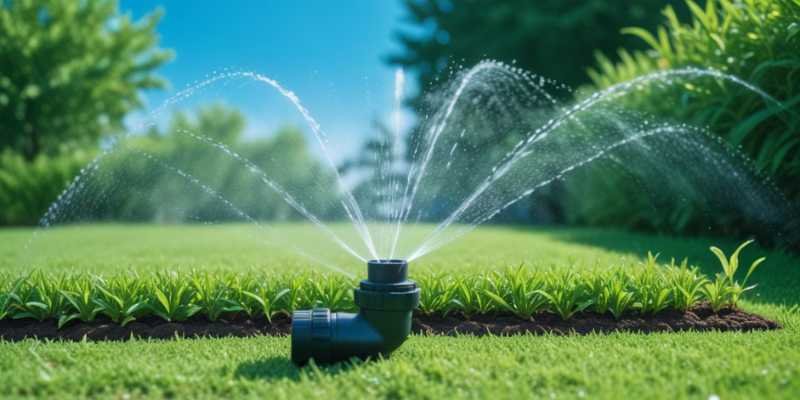
Enhanced Crop Yield
One of the primary benefits of AI-based smart irrigation systems is their ability to enhance crop yield. By delivering the right amount of water at the right time, these systems promote optimal plant growth and development, resulting in higher yields and improved crop quality. This not only benefits farmers by increasing productivity but also contributes to food security and sustainability on a global scale.
Improved Plant Health
Smart irrigation systems help maintain optimal soil moisture levels, ensuring that plants receive the water they need to thrive. By preventing both overwatering and underwatering, these systems minimize stress on plants, reduce the risk of disease, and promote overall plant health. Healthy plants are more resilient to environmental stressors, leading to better yields and a more sustainable agricultural ecosystem.
Energy Efficiency
Traditional irrigation methods often involve significant energy consumption, particularly in pumping water from its source to the fields. Smart irrigation systems optimize water usage, reducing the need for energy-intensive irrigation practices and lowering overall energy costs. By using water more efficiently, these systems contribute to energy conservation and environmental sustainability, making them a win-win solution for both farmers and the planet.
Importance of efficient water usage in irrigation
Efficient water usage is critical in irrigation, particularly in regions facing water scarcity and drought. Smart irrigation systems help conserve water by minimizing wastage and maximizing the effectiveness of each drop. By using real-time data and advanced technology, these systems ensure that water is applied precisely where and when it’s needed, reducing unnecessary runoff and preserving precious water resources for future generations.
Benefits of Smart Irrigation Systems
Conservation of Water
Smart irrigation systems contribute to water conservation by reducing water wastage and preserving natural resources. By adjusting watering schedules based on real-time data, these systems minimize runoff and soil erosion, ensuring that water is used efficiently and sustainably. This not only benefits the environment but also helps address water scarcity and promote long-term water security.
Cost Savings
In addition to conserving water, smart irrigation systems offer significant cost savings for users. By optimizing water usage and minimizing energy consumption, these systems reduce water bills and lower maintenance costs associated with traditional irrigation methods. Over time, the savings generated by smart irrigation systems can add up, providing a compelling return on investment for farmers and property owners alike.
Environmental Impact
Smart irrigation systems have a positive environmental impact, reducing the use of harmful chemicals and minimizing the carbon footprint associated with irrigation practices. By using water more efficiently and minimizing runoff, these systems help protect water quality and preserve natural ecosystems. Additionally, by promoting healthier plant growth and reducing the need for chemical inputs, smart irrigation systems contribute to a more sustainable agricultural industry.
What is the future scope of smart irrigation system
The future scope of smart irrigation systems is brimming with promise and potential, driven by ongoing advancements in technology, data analytics, and sustainability initiatives. As the global population continues to grow and the demand for food and water increases, the need for efficient and sustainable irrigation solutions becomes ever more pressing. Smart irrigation systems are poised to play a central role in addressing these challenges, offering innovative solutions to optimize water usage, enhance crop yield, and minimize environmental impact.
Advancements in Technology
Technological advancements are at the forefront of shaping the future of smart irrigation systems, enabling them to become increasingly intelligent, efficient, and user-friendly. From the integration of AI algorithms and machine learning capabilities to the development of advanced sensors and controllers, smart irrigation systems are evolving rapidly to meet the diverse needs of users across various industries and applications.
| Technological Advancements | Description |
|---|---|
| AI Integration | AI algorithms are being integrated into smart irrigation systems to analyze data, optimize watering schedules, and adapt to changing environmental conditions in real-time. By leveraging AI technology, these systems offer greater precision, efficiency, and automation in irrigation practices. |
| Sensor Innovations | Advances in sensor technology, including soil moisture sensors, weather sensors, and plant sensors, enable smart irrigation systems to collect more accurate and detailed data about environmental conditions, water usage, and plant health. These sensors provide valuable insights that inform irrigation decisions and optimize performance. |
Sustainability Initiatives
Sustainability initiatives are driving the adoption of smart irrigation systems as part of broader efforts to conserve water, reduce waste, and minimize environmental impact. As concerns about climate change, water scarcity, and resource depletion continue to escalate, there is growing recognition of the importance of adopting sustainable irrigation practices that prioritize efficiency, conservation, and resilience.
| Sustainability Initiatives | Description |
|---|---|
| Water Conservation | Smart irrigation systems are instrumental in conserving water by optimizing usage, minimizing waste, and maximizing efficiency. By applying water precisely where and when it’s needed, these systems help address water scarcity and promote long-term water security. |
| Environmental Protection | Smart irrigation systems minimize environmental impact by reducing runoff, soil erosion, and the use of harmful chemicals. By promoting sustainable irrigation practices, these systems help protect natural ecosystems, preserve biodiversity, and mitigate the effects of climate change. |
Integration with IoT and Big Data Analytics
Integration with Internet of Things (IoT) devices and big data analytics platforms is expanding the capabilities of smart irrigation systems, enabling them to collect, analyze, and leverage vast amounts of data to optimize performance and deliver actionable insights. By harnessing the power of IoT sensors, cloud computing, and predictive analytics, these systems offer enhanced functionality, scalability, and interoperability.
| Integration Benefits | Description |
|---|---|
| IoT Connectivity | IoT sensors enable smart irrigation systems to collect real-time data about environmental conditions, water usage, and system performance. By connecting to the internet, these systems can communicate with other devices and platforms, facilitating remote monitoring, control, and data analysis. |
| Big Data Analytics | Big data analytics platforms analyze large datasets generated by smart irrigation systems to identify patterns, trends, and correlations. By leveraging predictive analytics and machine learning algorithms, these platforms provide valuable insights that inform decision-making and optimize performance. |
In summary, the future scope of smart irrigation systems is characterized by advancements in technology, sustainability initiatives, and integration with IoT and big data analytics. By embracing these trends and innovations, smart irrigation systems are poised to become even more intelligent, efficient, and sustainable, offering transformative solutions for water management and agricultural practices. As the world grapples with the challenges of climate change, population growth, and resource scarcity, smart irrigation systems offer a beacon of hope, promising to meet the growing demand for food and water while minimizing environmental impact and promoting sustainability.
AI Integration in Different Types of Irrigation Systems
Artificial Intelligence (AI) integration has revolutionized various types of irrigation systems, enhancing their efficiency, precision, and sustainability. By leveraging AI algorithms, these systems can analyze data, optimize watering schedules, and adapt to changing environmental conditions in real-time. Let’s explore how AI is integrated into different types of irrigation systems and the benefits it brings to each.
Sprinkler Irrigation
Sprinkler irrigation systems, which distribute water through sprinkler heads, have benefitted significantly from AI integration. AI algorithms analyze data from weather sensors, soil moisture sensors, and plant sensors to determine optimal watering schedules and adjust sprinkler operation accordingly. By considering factors such as temperature, humidity, wind speed, and plant water needs, AI-enabled sprinkler systems ensure precise water distribution and minimize waste. Additionally, AI integration allows for predictive modeling of irrigation requirements based on historical data and weather forecasts, further optimizing water usage and enhancing system efficiency.
Drip Irrigation
Drip irrigation systems, which deliver water directly to the root zone of plants through a network of drip emitters, also benefit from AI integration. AI algorithms analyze soil moisture levels, plant water needs, and weather conditions to adjust drip irrigation schedules and optimize water application. By dynamically adjusting drip flow rates and durations based on real-time data, AI-enabled drip irrigation systems ensure that plants receive the right amount of water at the right time, maximizing water efficiency and promoting healthy plant growth. Additionally, AI integration enables predictive analytics to anticipate future watering needs and optimize irrigation strategies accordingly.
Center Pivot Irrigation
Center pivot irrigation systems, which consist of rotating sprinklers mounted on a pivot point, have embraced AI integration to improve efficiency and precision. AI algorithms analyze data from weather sensors, soil moisture sensors, and satellite imagery to optimize pivot movement and watering patterns. By considering factors such as soil moisture levels, crop type, and terrain topography, AI-enabled center pivot systems adjust irrigation schedules and nozzle configurations to minimize water waste and maximize crop yield. Additionally, AI integration enables remote monitoring and control of pivot operations, allowing farmers to manage irrigation tasks more effectively and efficiently.
AI Integration Benefits
The integration of AI into different types of irrigation systems offers numerous benefits for users, including:
- Optimized Water Usage: AI algorithms analyze data to determine precise watering schedules, ensuring that water is applied only when and where it’s needed. This optimization minimizes water waste and promotes efficient water usage.
- Enhanced Crop Yield: By considering factors such as soil moisture levels, weather conditions, and plant water needs, AI-enabled irrigation systems promote healthy plant growth and optimize crop yield.
- Minimized Environmental Impact: AI integration enables irrigation systems to minimize water waste, runoff, and soil erosion, reducing the environmental impact of irrigation practices and promoting sustainability.
- Predictive Analytics: AI algorithms enable predictive modeling of irrigation requirements based on historical data and weather forecasts, allowing for proactive adjustment of irrigation strategies to anticipate future needs.
- Remote Monitoring and Control: AI-enabled irrigation systems offer remote monitoring and control capabilities, allowing users to manage irrigation tasks from anywhere, at any time, using a smartphone or computer.
In summary, AI integration enhances the efficiency, precision, and sustainability of different types of irrigation systems, optimizing water usage, maximizing crop yield, and minimizing environmental impact. By leveraging AI algorithms to analyze data, optimize schedules, and adapt to changing conditions, these systems represent the future of irrigation technology, offering innovative solutions to meet the challenges of water scarcity and agricultural sustainability.
Components of Smart Irrigation Systems
Smart irrigation systems consist of a diverse array of components, each playing a crucial role in the system’s overall functionality and performance. From sensors that collect data about environmental conditions to controllers that analyze and act on that data, these components work together seamlessly to optimize water usage, enhance crop yield, and minimize environmental impact. Let’s explore the key components of smart irrigation systems in more detail.
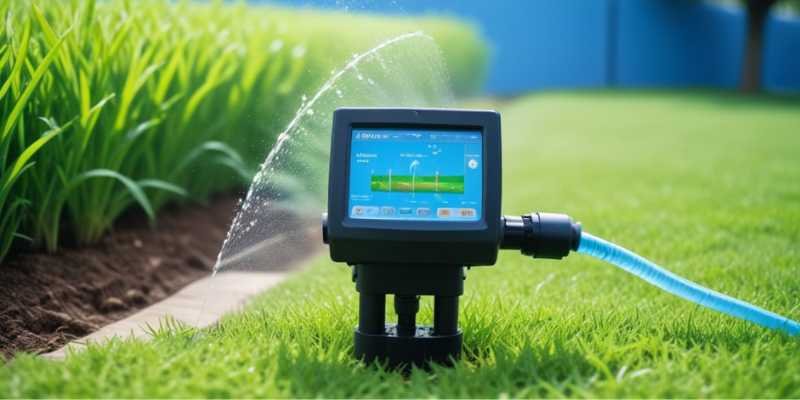
Sensors
Sensors are the backbone of smart irrigation systems, responsible for collecting data about various environmental factors that influence watering decisions. These sensors come in a variety of types and configurations, each designed to measure specific parameters such as soil moisture levels, weather conditions, and plant water needs. By providing real-time data about the soil, atmosphere, and plant health, sensors enable smart irrigation systems to make informed decisions about watering schedules and optimize water usage.
| Type of Sensor | Description |
|---|---|
| Soil Moisture Sensor | Soil moisture sensors measure the moisture content of the soil, indicating whether it is too dry or too wet for optimal plant growth. These sensors can be installed at various depths within the soil profile to provide a comprehensive picture of soil moisture levels and distribution. |
| Weather Sensor | Weather sensors collect data about atmospheric conditions such as temperature, humidity, and precipitation. By monitoring weather patterns in real-time, these sensors enable smart irrigation systems to adjust watering schedules accordingly, taking into account factors such as evaporation rates and rainfall. |
| Plant Sensor | Plant sensors measure various parameters related to plant health and growth, such as leaf temperature, leaf wetness, and chlorophyll levels. By monitoring the physiological status of plants, these sensors provide valuable insights into their water needs and overall health, guiding irrigation decisions. |
Controllers
Controllers serve as the brains of smart irrigation systems, processing data collected by sensors and making decisions about watering schedules. These controllers come in different forms, including climate-based controllers, soil moisture sensor controllers, and AI-based controllers, each offering unique features and capabilities. By analyzing environmental conditions and user-defined preferences, controllers determine when and how much water to apply to the designated area, ensuring precise and efficient irrigation practices.
| Type of Controller | Description |
|---|---|
| Climate-Based Controller | Climate-based controllers use data from weather sensors to adjust watering schedules based on local weather conditions such as temperature, humidity, and precipitation. By incorporating real-time weather data, these controllers optimize irrigation practices to match plant water needs and environmental conditions. |
| Soil Moisture Sensor Controller | Soil moisture sensor controllers rely on data from soil moisture sensors to determine when to water and how much water to apply to the soil. By monitoring soil moisture levels in real-time, these controllers ensure that water is applied only when the soil is dry, minimizing the risk of overwatering and water wastage. |
| AI-Based Controller | AI-based controllers leverage artificial intelligence algorithms to analyze data from sensors and make intelligent decisions about watering schedules. By continuously learning and adapting to changing conditions, these controllers optimize irrigation practices, maximize water efficiency, and enhance crop yield. |
Add-On Devices
Add-on devices enhance the functionality and performance of smart irrigation systems by providing additional data and control capabilities. These devices can include rain and freeze sensors, wind sensors, humidity sensors, and flow sensors, each offering unique benefits for irrigation management. By integrating these add-on devices into their systems, users can further optimize water usage, minimize environmental impact, and promote healthy plant growth.
| Type of Add-On Device | Description |
|---|---|
| Rain and Freeze Sensor | Rain and freeze sensors detect precipitation and freezing temperatures, allowing smart irrigation systems to suspend watering during inclement weather conditions. By preventing unnecessary watering, these sensors conserve water, reduce runoff, and protect plants from damage caused by frost. |
| Wind Sensor | Wind sensors measure wind speed and direction, providing valuable data for adjusting irrigation practices in windy conditions. By avoiding excessive water drift and evaporation, these sensors optimize water distribution and minimize waste, ensuring that water is applied precisely where it’s needed. |
| Humidity Sensor | Humidity sensors monitor atmospheric humidity levels, helping smart irrigation systems adjust watering schedules based on ambient moisture levels. By accounting for humidity fluctuations, these sensors optimize irrigation practices to match plant water needs and environmental conditions, maximizing efficiency. |
In summary, the components of smart irrigation systems work together seamlessly to optimize water usage, enhance crop yield, and minimize environmental impact. From sensors that collect data about soil moisture levels and weather conditions to controllers that analyze and act on that data, these components enable smart irrigation systems to make informed decisions and deliver precise and efficient watering practices. By incorporating add-on devices for additional data and control capabilities, users can further optimize the performance and sustainability of their irrigation systems, ensuring healthy plant growth and resource conservation.
Using Smart Water Technology to Resist Water Shortages
Water shortages pose a significant challenge for agricultural, residential, and commercial water users worldwide, necessitating innovative solutions to conserve water and maximize efficiency. Smart water technology, integrated into irrigation systems, plays a crucial role in mitigating water shortages by optimizing water usage, minimizing waste, and promoting sustainable water management practices. Let’s explore how smart water technology helps resist water shortages and ensure efficient water usage in various sectors.
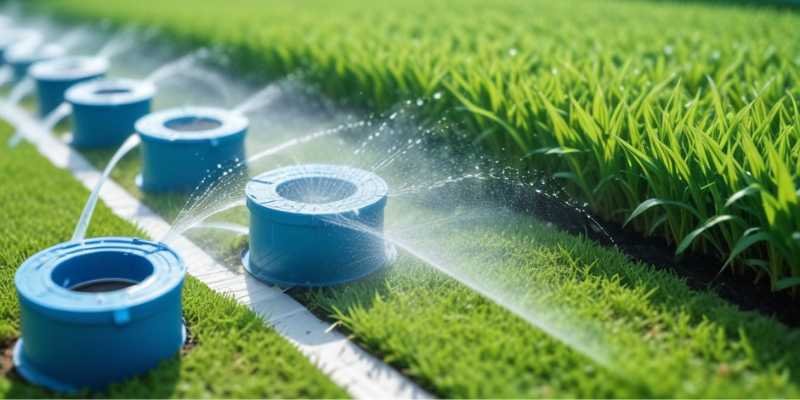
Leak Detection
One of the primary benefits of smart water technology is its ability to detect leaks in irrigation infrastructure quickly. By monitoring water flow and pressure in irrigation pipelines, sensors can identify leaks and alert users to potential issues before they escalate. This proactive approach to leak detection helps prevent water wastage, conserve resources, and minimize the impact of leaks on water availability.
Measurement
Smart water technology enables precise measurement of water usage, allowing users to track consumption patterns and identify areas for improvement. By collecting data on water usage in real-time, sensors provide valuable insights into irrigation practices, helping users optimize watering schedules, and minimize wastage. This data-driven approach to measurement enables more efficient water management and promotes responsible water usage.
Automation
Automation is a key feature of smart water technology, allowing irrigation systems to operate autonomously and adjust watering schedules based on predefined parameters. By integrating sensors, controllers, and AI algorithms, smart irrigation systems can respond dynamically to changing environmental conditions, ensuring that water is applied precisely where and when it’s needed. This automation reduces the need for manual intervention, streamlines irrigation practices, and maximizes efficiency.
Harnessing Real-Time Data
Real-time data analysis is central to the effectiveness of smart water technology, enabling irrigation systems to make informed decisions about water usage in response to changing conditions. By continuously monitoring environmental factors such as soil moisture levels, weather forecasts, and plant water needs, sensors provide up-to-date information that guides irrigation decisions. This real-time data analysis optimizes water usage, minimizes waste, and ensures that water is applied efficiently, even in dynamic and unpredictable environments.
Preventive Maintenance
Smart water technology facilitates preventive maintenance of irrigation systems, allowing users to identify and address issues before they lead to water wastage or system failure. By monitoring system performance and detecting abnormalities in real-time, sensors enable proactive maintenance and timely repairs, minimizing downtime and ensuring the reliability of irrigation infrastructure. This proactive approach to maintenance enhances system efficiency, prolongs equipment lifespan, and reduces the risk of water shortages due to system malfunctions.
Optimization
Optimization is a core principle of smart water technology, driving continuous improvement in water management practices and resource utilization. By analyzing data, optimizing irrigation schedules, and adjusting system parameters, smart irrigation systems maximize efficiency and minimize waste. This ongoing optimization process ensures that water resources are used responsibly, even in the face of water shortages and environmental challenges.
In summary, smart water technology offers a comprehensive solution for resisting water shortages and promoting sustainable water management practices. By incorporating leak detection, measurement, automation, real-time data analysis, preventive maintenance, and optimization capabilities, smart irrigation systems optimize water usage, minimize waste, and ensure efficient water distribution. As water scarcity becomes an increasingly pressing issue globally, the adoption of smart water technology is essential for conserving resources, mitigating the impact of water shortages, and building resilience in the face of environmental challenges.
Frequently Asked Questions (FAQ’s)
What Is a Commercial Smart Irrigation System?
A commercial smart irrigation system is designed for use in large-scale agricultural operations, commercial landscapes, and municipal green spaces. These systems utilize advanced technology to optimize water usage, minimize maintenance costs, and promote healthy plant growth on a commercial scale.
What Is the Concept of Smart Irrigation System?
The concept of a smart irrigation system revolves around the use of technology to optimize watering practices and maximize irrigation efficiency. By integrating sensors, controllers, and AI algorithms, these systems provide users with greater control and flexibility over their irrigation practices, resulting in improved water conservation, cost savings, and environmental sustainability.
What Are the Applications of Smart Irrigation System?
Smart irrigation systems have a wide range of applications, from agriculture and landscaping to municipal water management and conservation efforts. These systems can be used in various environments, including farms, golf courses, parks, and residential properties, to optimize water usage, promote healthy plant growth, and minimize environmental impact.
What Are the Effects of Smart Irrigation System?
The effects of smart irrigation systems are manifold, ranging from improved crop yield and plant health to cost savings and environmental sustainability. By optimizing water usage, minimizing wastage, and promoting efficient irrigation practices, these systems contribute to food security, water conservation, and the preservation of natural resources.
How Do Smart Water Systems Help Property Managers?
Smart water systems help property managers optimize water usage, minimize water wastage, and reduce maintenance costs associated with traditional irrigation methods. By providing real-time data, remote access capabilities, and automated scheduling features, these systems streamline the irrigation process and promote sustainable water management practices.
What to Look for in a Commercial Smart Irrigation System?
When choosing a commercial smart irrigation system, it’s essential to consider factors such as system scalability, compatibility with existing infrastructure, and technical support services. Additionally, features such as remote access, weather-based scheduling, and add-on sensors can enhance the efficiency and performance of the system in a commercial setting.
Finding a Smart Irrigation Company
Finding the right smart irrigation company is crucial for ensuring the success of your irrigation project. Look for companies with a proven track record of delivering high-quality products and excellent customer service. Consider factors such as experience, expertise, and reputation when selecting a smart irrigation company to partner with.
Why Choose RainPoint Smart Irrigation Systems?
RainPoint Smart Irrigation Systems offer cutting-edge technology, intuitive design, and unparalleled performance for residential, commercial, and agricultural applications. With features such as AI-based controllers, soil moisture sensors, and remote access capabilities, RainPoint systems provide users with the tools they need to optimize water usage, promote healthy plant growth, and minimize environmental impact.
The Bottom Line
Smart irrigation systems represent the future of watering, offering a more efficient, precise, and sustainable approach to irrigation. By integrating advanced technology such as sensors, controllers, and AI algorithms, these systems optimize water usage, enhance crop yield, and minimize environmental impact. With ongoing advancements in AI integration, sensor technology, and data analytics, the future scope of smart irrigation systems is promising, paving the way for more efficient and sustainable water management practices on a global scale.

